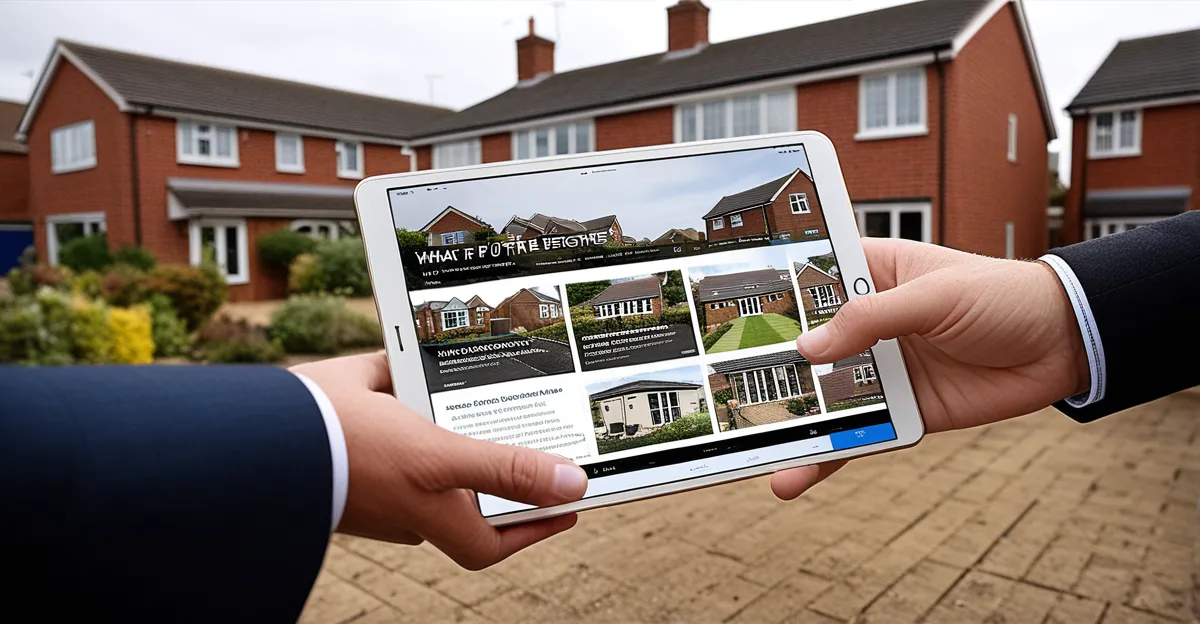Rapid Emergence of Technological Innovations in UK Real Estate
The rapid emergence of PropTech has fundamentally reshaped UK property innovation. This digital transformation enables more efficient and transparent real estate technology platforms, which have revolutionised investment strategies. PropTech tools now leverage advanced data analytics, artificial intelligence (AI), and automation to streamline property transactions and reduce manual errors.
These innovations improve market accessibility for investors by providing real-time data and predictive insights, helping to assess property value and risk more accurately. Automated valuation models, AI-driven tenant screening, and blockchain-enabled contracts exemplify how technology accelerates decision-making and boosts confidence in transactions.
In parallel : How does the rental market influence UK real estate prices?
Crucially, the integration of PropTech pushes the digital transformation beyond transactional efficiency. It promotes sustainability by facilitating energy-efficient building management and fosters inclusivity by broadening investor participation across regions.
As a result, UK property innovation increasingly relies on these technologies to respond to market demands decisively. Investors can capitalise on enhanced transparency, speed, and data-driven insights, which altogether underpin smarter investment choices in the evolving UK real estate landscape.
Have you seen this : How does the rental market influence UK real estate prices?
Rapid Emergence of Technological Innovations in UK Real Estate
Technology is reshaping the UK property market at an unprecedented pace. The rise of PropTech—innovative digital tools and software—has transformed traditional real estate practices into dynamic, data-driven processes. PropTech adoption profoundly impacts investment strategies by enabling smarter decision-making and increasing operational efficiency.
Advanced data analytics, AI, and automation streamline property transactions, reducing human error and accelerating deal closures. For instance, AI algorithms can analyze vast datasets to predict market trends, optimizing investment choices. Automation solutions handle repetitive tasks like document verification, freeing up professionals to focus on strategic activities.
Moreover, these technologies enhance market transparency and accessibility. Investors now benefit from clearer insights into asset performance and real-time market conditions. This openness supports more inclusive participation from smaller investors, democratizing access to lucrative UK property innovation.
In essence, digital transformation in real estate technology drives greater agility and responsiveness, equipping investors to navigate complex markets with confidence. The integration of PropTech into the core fabric of property dealings signals continuous evolution in how UK property is bought, sold, and managed.
Shifting Demand Preferences Among UK Property Investors
Investor behaviour in UK real estate is evolving rapidly. The rise of remote work has prompted a shift in property demand trends, driving increased interest in flexible living and working spaces. Build-to-rent models are also gaining traction, reflecting a preference for long-term rental security over ownership.
This changing investor behaviour significantly impacts demand across residential, commercial, and mixed-use properties. Residential markets see more focus on connectivity and amenities that support home office setups. In contrast, commercial real estate adjusts by incorporating hybrid workspace designs to accommodate flexible schedules. Mixed-use developments benefit, blending residential comforts with commercial conveniences to satisfy evolving tenant needs.
Investors adapt by re-evaluating portfolios, prioritising properties that align with these trends. For example, funds target urban locations offering high-quality rental accommodations with adaptable layouts. This responsiveness ensures portfolios remain resilient amid fluctuating demand.
Understanding these changing investor behaviours helps predict future growth sectors. It highlights the importance of aligning property offerings with new lifestyle patterns and underscores a critical strategy for success in UK property innovation.
Shifting Demand Preferences Among UK Property Investors
Property demand trends in the UK are evolving rapidly due to changing investor behaviour. The rise of remote work has markedly increased interest in residential spaces offering flexible layouts and dedicated home offices. This shift prioritises comfort and functionality, pushing demand away from traditional office-dominated commercial properties.
Build-to-rent models have surged, catering to renters seeking long-term, high-quality accommodation, thus transforming UK property innovation by blending residential stability with commercial investment appeal. Consequently, commercial property demand is adapting; investors now favour mixed-use developments that combine retail, office, and living spaces, reflecting diverse consumer needs.
How does this impact investors? Adaptation strategies focus on diversifying portfolios to include flexible, hybrid-use properties. These accommodate shifting lifestyles and the fluid dynamics of work and leisure. Understanding these trends helps investors capitalise on emerging opportunities within the transforming real estate technology space.
In response to evolving property demand trends, successful investors integrate PropTech tools to analyse market data, enabling precise identification of growth areas. This data-driven approach fosters agility in adjusting to the changing preferences shaping the UK property market landscape today.
Rapid Emergence of Technological Innovations in UK Real Estate
PropTech adoption is revolutionising UK property innovation by enhancing investment strategies through digital transformation. By integrating real estate technology, investors gain access to sophisticated tools that harness data analytics, artificial intelligence (AI), and automation. This technological synergy facilitates smarter evaluations and faster transactions.
How does PropTech specifically alter investment strategies? Precise data-driven algorithms process vast market datasets, predicting trends and optimising asset valuation. Automated workflows reduce administrative delays, allowing investors to act swiftly in competitive markets. For example, AI-powered tenant screening minimises risk, while blockchain ensures contract transparency.
Moreover, PropTech boosts market accessibility by democratizing information. Tools provide real-time insights across property portfolios, fostering inclusivity among smaller or remote investors. Digital platforms offer transparency, making complex property data more comprehensible and actionable.
This transformation steers UK real estate toward increased efficiency and reliability. With enhanced transparency and automation, PropTech elevates investor confidence, streamlines property transactions, and shapes a future where technology underpins more intelligent, agile property investment decisions.
Rapid Emergence of Technological Innovations in UK Real Estate
The widespread adoption of PropTech significantly transforms UK property innovation by embedding digital transformation into every stage of real estate technology. This shift enhances investment strategies, allowing for faster, more accurate decisions through advanced data analytics, AI, and automation. These tools process extensive market data swiftly, reducing transaction errors and uncovering deeper insights into property values and tenant profiles.
Automation expedites repetitive tasks like document verification and contract management, improving operational efficiency. Meanwhile, AI models predict market trends by analyzing diverse datasets, helping investors anticipate shifts and allocate resources strategically. The integration of these technologies facilitates greater market transparency, providing accessible, real-time insights for all investor tiers.
This real estate technology empowers investors by breaking down barriers to entry and enabling smaller players to compete alongside traditional institutions. Consequently, PropTech-driven innovation not only accelerates deal closures but also promotes more inclusive and agile investment landscapes in the UK property market. As digital transformation deepens, it redefines how assets are evaluated, transacted, and managed, cementing PropTech as a core pillar of modern UK property innovation.
Rapid Emergence of Technological Innovations in UK Real Estate
In UK property innovation, the adoption of PropTech drives a profound digital transformation that reshapes how investment strategies are crafted. PropTech integrates cutting-edge real estate technology such as advanced data analytics, artificial intelligence (AI), and automation to refine valuation models and streamline transactions. This reduces human error and accelerates decision-making speed.
How does this impact investment approaches? Precise algorithms analyse diverse datasets to forecast market dynamics, enabling investors to target high-potential assets efficiently. Automation further minimizes administrative bottlenecks, such as in contract processing and tenant screening, boosting operational agility.
Moreover, PropTech enhances market accessibility by democratizing real estate data. Investors gain real-time, transparent insights into portfolio performance and property trends, which levels the playing field for smaller or remote participants. This visibility builds trust and fosters inclusivity.
Overall, digital transformation through PropTech equips UK property investors with reliable, data-driven tools. These innovations elevate efficiency and transparency, allowing smarter investments amid an evolving, complex market landscape. The widespread integration of real estate technology signals an ongoing shift toward more agile and informed property investment decisions.
Rapid Emergence of Technological Innovations in UK Real Estate
The adoption of PropTech has become a fundamental catalyst in the ongoing digital transformation of UK property innovation. By integrating real estate technology deeply into investment strategies, stakeholders achieve faster, more accurate decision-making, driven by advancements in data analytics, AI, and automation.
How does this impact investment strategies? PropTech tools employ sophisticated algorithms to process large datasets, providing precise market predictions and enabling optimal asset valuation. Automation reduces administrative burdens by handling routine tasks, such as contract management and tenant screening, enhancing operational efficiency and speed across property transactions.
Moreover, PropTech dramatically improves market accessibility and transparency. Digital platforms deliver real-time insights that empower investors of all levels, breaking down traditional information barriers. Smaller and remote investors gain clearer visibility into property portfolios, fostering inclusivity and competitive participation.
Together, these technologies reshape UK property innovation by elevating transparency, agility, and confidence. The seamless integration of PropTech into daily operations supports smarter, more responsive investment decisions and marks a pivotal shift toward technology-driven market dynamics.
Rapid Emergence of Technological Innovations in UK Real Estate
The adoption of PropTech is a key driver of digital transformation within UK property innovation. PropTech integrates advanced real estate technology such as data analytics, artificial intelligence (AI), and automation, fundamentally reshaping investment strategies. How does this shift manifest in practice? AI algorithms process large volumes of market data to predict price movements and tenant behaviour with greater accuracy. Automation accelerates transactions by handling repetitive tasks, such as document verification and contract management, reducing delays and errors.
Furthermore, PropTech enhances market accessibility and transparency. Investors receive real-time access to detailed property metrics, enabling informed decisions regardless of portfolio size. By democratizing information, PropTech lowers traditional barriers—smaller investors and those outside major hubs can now engage competitively in the UK property market.
These technological advancements create an ecosystem where data-driven insights and streamlined workflows boost agility. Ultimately, integrating PropTech tools equips investors to navigate complex market dynamics effectively, fostering a more inclusive and efficient property investment landscape in the UK.
Rapid Emergence of Technological Innovations in UK Real Estate
The adoption of PropTech continues to accelerate, fundamentally transforming UK property innovation by embedding advanced real estate technology into every aspect of investment strategies. PropTech’s impact is most apparent in the enhanced use of data analytics, AI, and automation, which drive faster, more accurate decision-making processes. AI models analyse diverse property databases to detect trends and assess risks more precisely, empowering investors with refined insights.
Automation reduces manual workflows, speeding up tasks like contract management and tenant screening, thereby improving operational efficiency. This shift supports quicker deal closures, enabling investors to seize opportunities promptly in competitive markets.
Moreover, PropTech dramatically elevates market transparency and accessibility. Digital platforms offer real-time access to comprehensive property data, breaking down traditional barriers and allowing a wider pool of investors to engage effectively. Smaller investors benefit from clearer, more actionable information, fostering inclusivity within the UK’s property market.
Collectively, these technological advances redefine how properties are evaluated, transacted, and managed, positioning digital transformation as a key driver in the evolving landscape of UK property innovation.
Rapid Emergence of Technological Innovations in UK Real Estate
The integration of PropTech is fundamentally transforming UK property innovation by embedding real estate technology at every transaction stage. This digital transformation harnesses data analytics, AI, and automation to enhance investment strategies with greater precision, speed, and reliability. For example, data analytics algorithms process vast market information to identify trends and asset values, improving decision accuracy.
Automation accelerates property transactions by managing repetitive tasks like contract verification, reducing human error and administrative delays. AI further supports by predicting tenant behaviour and market shifts, allowing investors to anticipate risks and opportunities proactively.
How does PropTech improve market accessibility? It democratizes real estate information, providing real-time, transparent insights accessible to investors of all sizes. This technology breaks down traditional barriers, enabling smaller investors and those in remote areas to compete effectively alongside institutional players. Enhanced transparency also fosters greater trust throughout the investment process.
Collectively, these advancements signify a digital shift that elevates UK real estate investment, making the market faster, fairer, and more data-driven while supporting scalable and inclusive growth in the sector.
Rapid Emergence of Technological Innovations in UK Real Estate
The adoption of PropTech has quickly advanced digital transformation within the UK property innovation landscape. How does this adoption reshape investment strategies? PropTech integrates real estate technology like sophisticated data analytics, AI, and automation, which enhance precision in property valuation and tenant assessment. These technologies enable investors to swiftly process complex datasets and respond proactively to market fluctuations.
Automation reduces manual workload by streamlining document handling and contract processing, which accelerates transaction cycles and improves operational efficiency. Furthermore, the widespread use of PropTech fosters greater market accessibility by providing real-time, transparent information to a broader investor base, including smaller and remote participants. This transparency supports confidence and broadens competitive participation in UK real estate markets.
The synergy between AI and data analytics allows predictive modelling that forecasts market trends with improved accuracy, empowering investors to make informed decisions faster. Integrating PropTech innovations not only optimises asset management but also enhances inclusivity, embodying a pivotal shift towards technology-driven property investment strategies in the UK.









